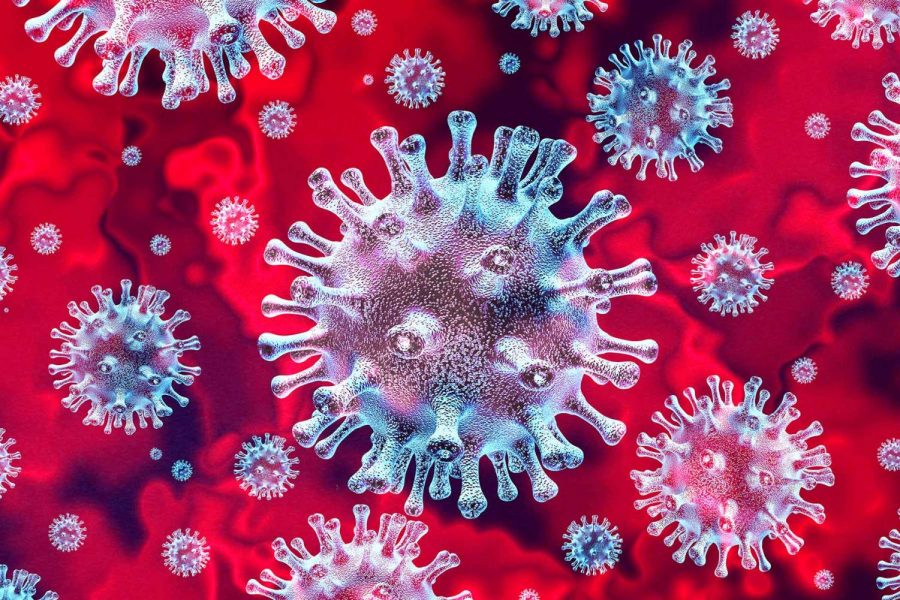Sabbasani: A post pandemic assumption
The coronavirus pandemic is not the first deadly outbreak the world has ever experienced; the 1918 influenza pandemic took over 50 million lives worldwide. The deadly virus affected every age range, from children to the elderly. Interestingly, the highest mortality rate was among younger adults. This immense death toll created panic for years, even with the development of a vaccine.
In 1918, the government had no centralized role in implementing coordinated pandemic plans across the country. According to the Centers for Disease Control and Prevention, some individual cities took precautions “such as closing schools, banning public gatherings and issuing isolation or quarantine orders.” To worsen the situation, vaccines or critical care support systems were not well-established, supportive care was minimal and testing for influenza was exceptionally difficult due to limited medical technological advancements and availability.
As conditions improved, normality was thought to be restored. Individuals slowly stopped wearing masks, crowds overwhelmed busy streets and work resumed. However, the influenza was still prevalent in society.
Many experts assumed these past experiences would aid in developing effective methods against potential pandemics. Though precautions such as surveillance, technological improvements and cautionary plans were established, no individual could have predicted the impact of COVID-19 on society. The pandemic has had a significant impact on the manufacture, distribution and supply of medications, products and life-saving medical equipment, such as mechanical ventilators. Even essential services were impacted tremendously. The world was placed into the same situation as the influenza outbreak with no set plan. Furthermore, COVID-19 was deemed to be more hazardous than influenza due to greater prolonged symptoms.
As we are still in the middle of this pandemic, the future is unknown. No one knows the path to normality or if normality will truly be reached. Past actions to achieve normality cannot be mirrored in this situation. COVID-19 is a complex virus with no clear way to halt its mutations. Thus, restoring any balance has been faced with many obstacles. However, assumptions about the course of the future can be justified based on the current progress.
It is evident that improvements to everyday life have been already made. Schools, stores and public spaces have reopened. Air travel has resumed. Conversely, there are still many areas that require masks as a precautionary measure. Though progress is slow, it is necessary to mitigate an increase in COVID-19 cases. That being said, fear is still present, as the idea that there is no prevention or cure for the coronavirus strikes terror.
Large corporations and research institutions have become the front-runners to develop a vaccine. If vaccinations are distributed to the masses with efficiency and accuracy in the near future, fear amongst the public is expected to decrease significantly. Though vaccination as a prevention tactic is not fully effective, it will pave a road for many to revert back to their old ways. At some point, there will likely be a surge in larger gatherings, a decrease in utilizing masks and a pre-pandemic nature will return. Globally, the expectation is that the economy and other major sectors will progressively reach its prior state. However, there is always an uncertainty about whether vaccination will act as a fool-proof prevention tactic. The skeptics argue normality will not be achieved for a long time.
The 1918 influenza pandemic has taught experts that recovery from a pandemic is a slow process. There was no immediate revitalization. However, even with the developments that have occurred in the 21st century, there is no clear path towards an exact pre-pandemic future. The coronavirus’ aggressive nature has brought many difficulties and obstacles in everyday activities, but it is safe to assume that many individuals have begun to adapt to the situation. The new norm could be to wear masks on a daily basis. The world may never know. Only gradual progress towards normality can be achieved.

Jothsna Sabbasani is a second-year student majoring in neuroscience and political science, with a minor in chemistry. She loves to scuba dive—even if...


